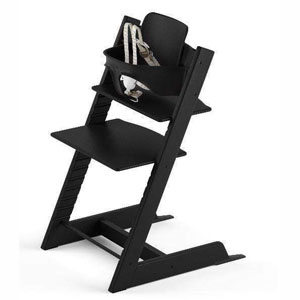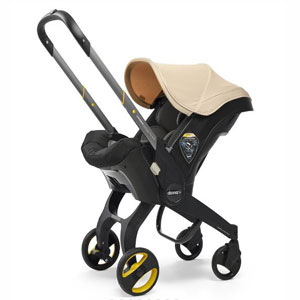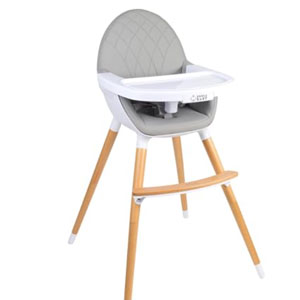Table of Contents
Are you struggling with getting your baby to sleep at night? Have you tried everything, from rocking to singing to reading, but nothing seems to work? Perhaps you long for a magic wand, enchanted to make your baby drift into peaceful slumber and slumber on till morning.
If you’re nodding your head in agreement, don’t worry, you’re not alone. Many parents of newborns and toddlers face the same challenges when it comes to baby sleep. While sleep is vital for your baby’s well-being and development, it can often feel like an uphill battle, fraught with frustration and elusiveness.
But fret not, there’s light on the horizon. In this article, we’ll share some proven tips and tricks that can help you and your baby get the rest you both need and deserve. We’ll also explain why music can be a powerful tool to soothe your baby and improve their sleep quality.
Ready to embark on a journey to mastering the art of helping your baby fall asleep and sleep like a pro? Let’s get the ball rolling!
Why Is Baby Sleep So Important?
Sleep is not merely a luxury, it is an absolute necessity. Sleep is essential for your baby’s physical, mental, and emotional well-being. According to the American Academy of Pediatrics, sleep plays a key role in your baby’s:
Growth and development: Sleep promotes the release of growth hormones and supports the development of the brain and nervous system.
Immune system: Sleep helps your baby fight off infections and illnesses, and reduces the risk of chronic diseases.
Learning and memory: Sleep enhances your baby’s ability to process and retain information, and boosts their creativity and problem-solving skills.
Mood and behavior: Sleep regulates your baby’s emotions and temperament, and prevents irritability and tantrums.
As you can see, sleep is crucial for your baby’s overall health and happiness. But how much sleep does your baby need? And how can you make sure they get enough of it?
How Much Sleep Does Your Baby Need?
The amount of sleep your baby needs depends on their age and individual needs. However, here are some general guidelines from the National Sleep Foundation:
Newborns (0-3 months): 14-17 hours of sleep per day, including naps
Infants (4-11 months): 12-15 hours of sleep per day, including naps
Toddlers (1-2 years): 11-14 hours of sleep per day, including naps
Of course, these are just averages, and your baby may need more or less sleep than the recommended range. The important thing is to observe your baby’s cues and patterns and adjust their sleep schedule accordingly.

How Can You Help Your Baby Fall Asleep and Stay Asleep?
Establish a consistent bedtime routine
A bedtime routine is a series of activities that you do with your baby every night before bed, such as bathing, changing, feeding, reading, and cuddling. A bedtime routine helps your baby wind down, relax, and signal to their body and brain that it’s time to sleep. It also creates a positive association between sleep and comfort and strengthens your bond with your baby.
Create a conducive sleep environment
Make sure your baby’s room is dark, quiet, and comfortable. Use curtains, blinds, or shades to block out any external light, and use a fan, white noise machine, or soft music to mask any distracting sounds. Adjust the temperature, humidity, and ventilation to suit your baby’s preferences, and dress them in cozy and breathable pajamas. You can also use a crib, bassinet, or other structure designed for infants, and avoid sharing your bed with your baby, as this can pose a risk of suffocation or injury.
Follow a regular sleep schedule
Try to put your baby to bed and wake them up at the same time every day, even on weekends and holidays. This will help your baby develop a natural sleep rhythm, and regulate their internal clock. It will also make it easier for you to plan your day and anticipate your baby’s needs.
Avoid overstimulation
Avoid exposing your baby to bright lights, loud noises, or exciting activities before bed, as these can keep them awake and alert. Instead, opt for calm and soothing activities, such as gentle massage, lullabies, or stories. You can also limit your baby’s screen time, as the blue light from TVs, computers, or smartphones can interfere with their sleep hormones and delay their sleep onset.
Encourage self-soothing
Self-soothing is the ability to calm oneself down and fall asleep without external help. This is a skill that your baby can learn over time, and it can be especially useful in the middle of the night when they wake up and need to fall back asleep on their own. You can help your baby develop self-soothing skills by putting them to bed when they are drowsy but awake, and giving them a favorite stuffed animal, blanket, or toy to comfort them. You can also avoid rushing to their side every time they cry, and give them some time to settle down by themselves. Of course, you should always check on your baby if they are in distress, and offer them reassurance and support when needed.
How Can Music Help Your Baby Sleep Better?
Music is a powerful tool that can enhance your baby’s sleep in many ways. Music can:
Reduce stress and anxiety.
Music can have a soothing and uplifting effect on your baby’s mood, and lower their levels of stress hormones. Music can also distract your baby from any pain, discomfort, or fear they may be feeling, and help them relax and cope better.
Slow down the heart rate and breathing.
Music can influence your baby’s physiological functions, and make them more conducive to sleep. Music can slow down your baby’s heart rate and breathing, lower their blood pressure, and relax their muscles. Music can also synchronize your baby’s brain waves with the rhythm of the music, and induce a state of drowsiness.
Stimulate the brain and memory.
Music can activate your baby’s brain and enhance their cognitive abilities. Music can stimulate your baby’s auditory, visual, and motor skills, and improve their spatial intelligence and understanding of the world around them. Music can also boost your baby’s memory and learning processes, and help them remember and recall information better.
Foster emotional and social development.
Music can express your baby’s feelings and emotions, and help them communicate and connect with others. Music can also foster your baby’s self-esteem and confidence, and encourage them to explore and experiment with different sounds and instruments.

What Kind of Music Should You Play for Your Baby?
There is no definitive answer to this question, as different babies may respond differently to different types of music. However, here are some general guidelines to help you choose the best music for your baby:
Choose music that is soft, soothing, and relaxing. Avoid music that is loud, fast, or chaotic, as this can overstimulate or agitate your baby. Opt for music that has a slow tempo, a low pitch, and a simple melody, such as classical music, gentle sounds, or lullabies.
Choose music that is familiar and meaningful. Play music that your baby has heard before, or that has a special significance for you and your baby. For example, you can play music that you listened to during your pregnancy, music that you sing to your baby, or music that reflects your culture or heritage. This will create a sense of familiarity and security for your baby, and strengthen your bond with them.
Choose music that is varied and diverse. Expose your baby to different genres, styles, and languages of music, as this can enrich their musical experience and broaden their horizons. You can also mix up the music you play for your baby, and avoid playing the same music over and over again, as this can bore or annoy your baby.
We strongly recommend this YouTube channel named “Just a Pause” offering exceptional videos and music for you as parents, but also for your baby to fall asleep. They offer a variety of music from Classical, Binaural 528Hz music and Relaxing music in general for babies. The visuals are also stunning, don’t be surprised if you fall asleep too with your baby watching them!

The Effects of Baby Sleep on Parents’ Health and Well-Being
How Baby Sleep Ruined My Life!
- According to the Sleep Foundation, sleep deprivation can negatively impact positive parenting, mood, health, safety, and longevity for parents.
- The CDC reports that sleep plays a key role in your baby’s growth and development, immune system, learning and memory, and mood and behavior.
- University of Maryland School of Medicine recommends that newborns (0-3 months) get 14-17 hours of sleep per day, infants (4-11 months) get 12-15 hours, and toddlers (1-2 years) get 11-14 hours.
- In one Australian study, the average amount of sleep over a 24-hour period among 554 four- to six-month-olds was 14 hours. But there was more than eight hours’ difference between those getting the most and the least sleep.
- Generally, newborns sleep a total of about 8 to 9 hours in the daytime and a total of about 8 hours at night. But because they have a small stomach, they must wake every few hours to eat
- Babies have shorter sleep cycles of about 50-60 minutes, spending 50% of total sleep in the lighter REM stage when they are more easily aroused. Adults have longer sleep cycles of about 90 minutes, spending 20-25% of total sleep in REM.
- According to the Guardian, parents of newborns often lose about two hours of sleep per night until the baby is 5 months old. From then until their child hits 2 years old, parents usually lose an hour of sleep each night.
- According to HealthDay, mothers who co-sleep with toddlers with perceived sleep problems lost almost one hour of sleep and reported symptoms of stress, depression, and anxiety.
… And How Music Saved It!
- In a 1990 study, 80 percent of the babies in the participant group fell asleep within five minutes of listening to white noise(*).
- In a 2015 study, researchers found that playing Brahms’ Lullaby to premature infants in the neonatal intensive care unit (NICU) reduced their heart rate, increased their oxygen saturation, and improved their sleep quality.
- In a 2017 study, researchers found that playing Mozart’s Sonata for Two Pianos in D Major to healthy term infants reduced their crying time and increased their sleep duration.
These studies suggest that music can have a soothing and calming effect on babies, and help them fall asleep faster and sleep better. Music can also benefit their physiological and psychological well-being, and support their development.
(*) White noise is a type of sound that contains all the frequencies that humans can hear in equal amounts. It sounds like a constant hiss or hum, and it can mask other noises that might disturb your sleep or concentration. Some examples of white noise are the static from a TV or radio, the sound of a fan, or the noise of a waterfall.

Frequently Asked Questions About Baby Sleep
How can I introduce music to my baby?
You can introduce music to your baby from an early age, even before they are born. You can play music for your baby in the womb, sing to your baby, or play musical toys or instruments for your baby. You can also involve your baby in musical activities, such as dancing, clapping, or tapping to the music, or making your own music with household objects.
How loud should the music be for my baby?
The music should be loud enough for your baby to hear clearly, but not so loud that it hurts their ears or disturbs their sleep. A good rule of thumb is to keep the music at a level that you can comfortably talk over, or about 50-60 decibels. You can also use a sound meter app on your phone to measure the sound level of the music.
How long should I play music for my baby?
The duration of the music depends on your baby’s preferences and needs. Some babies may enjoy listening to music for a long time, while others may get tired or bored after a short while. You can experiment with different lengths of music, and observe your baby’s reactions and cues. Generally, you can play music for your baby for about 15-30 minutes before bedtime, or until they fall asleep.
What are some good music sources or recommendations for my baby?
There are many music sources and recommendations for your baby, such as CDs, MP3s, streaming services, radio stations, and online videos. We recommend this free YouTube channel that offers a wide range of relaxing videos for your baby, some do include automatic volume downscaling which is very practical and proven to be efficient.
#babysleepmusic #sleepingbaby #sleeptraining #babysleepcoach #sleepybaby #babysleep #sleepingtips #sleepbetter #sleephygiene #sleepwell #sleep #baby #music #parenting #health
Did you like this article, please comment on our Facebook page! Thank you.





















